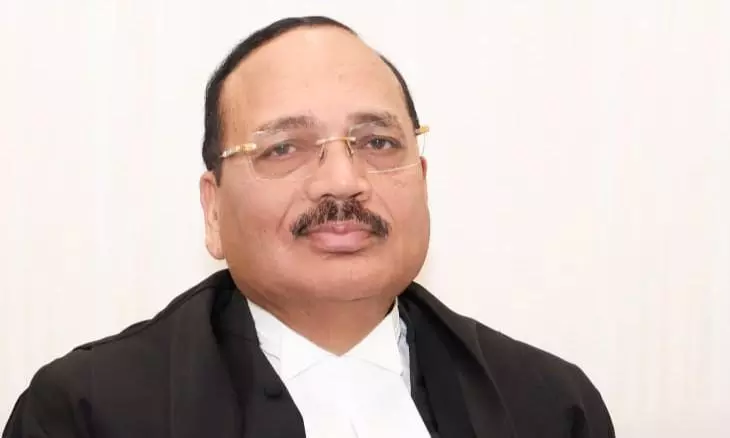
Justice Surya Kant to take oath as 53rd CJI on Monday
Justice Surya Kant, known for key verdicts on Article 370, sedition law and Pegasus, to take oath as the CJI, succeeding Justice BR Gavai

Justice Surya Kant will take oath as the 53rd Chief Justice of India on Monday (November 24), succeeding Justice BR Gavai, who will demit office on Sunday evening.
Justice Kant was appointed as the next CJI on October 30 and he is expected to be in the post for nearly 15 months. He will demit office on February 9, 2027, on attaining the age of 65 years.
Justice Kant has been part of several landmark verdicts and orders, including the abrogation of Article 370, which removed the special status of Jammu and Kashmir, the revision of Bihar’s electoral rolls, and the Pegasus spyware case.
Who is Justice Surya Kant?
Justice Kant was born on February 10, 1962, in Hisar district, Haryana. His parents came from a middle-class background. He has the distinction of standing 'first class first' in his Master’s degree in Law in 2011 from Kurukshetra University.
He served as a Justice in the Punjab and Haryana High Court and penned several notable judgments. Later, he was appointed as Chief Justice of Himachal Pradesh High Court on October 5, 2018.
Also Read: Presidential reference: Is it a win for Centre? SC lawyer Sanjay Hegde explains
Justice Kant started his career as a small-town lawyer. Within a few decades, his trajectory reached the country’s highest judicial office, where he has been part of several key verdicts and orders of national importance and constitutional matters.
Key verdicts and orders
His tenure as a Supreme Court judge is marked by verdicts on various constitutional-related matters such as the abrogation of Article 370, free speech, and citizenship rights.
It is to be noted that he was part of the recent presidential reference on the powers of the Governor and President in dealing with bills passed by a State Assemblies. The verdict is keenly awaited with potential ramifications across states.
Also Read: Aadhaar only for voters’ identity verification, not citizenship proof, EC tells SC
He was also part of the bench that kept the colonial-era sedition law in abeyance, directing that no new FIRs be registered under it until a government review.
Justice Kant also nudged the Election Commission to disclose the details of 65 lakh voters excluded from the draft electoral rolls in Bihar while hearing a batch of petitions challenging the poll panel’s decision to undertake Special Intensive Revision (SIR) of the voters list in the state.
Key voice in reforms
In an order that emphasised grassroots democracy and gender justice, he led a bench that reinstated a woman sarpanch unlawfully removed from office and called out the gender bias in the matter. He is also credited with directing that one-third of seats in bar associations, including the Supreme Court Bar Association, be reserved for women.
He also upheld the One Rank-One Pension scheme for defence forces, calling it constitutionally valid, and continues to hear petitions of women officers in the armed forces seeking parity in permanent commission.
Justice Kant was part of the bench that appointed a five-member committee headed by former top court judge Justice Indu Malhotra to probe the security breach during Prime Minister Narendra Modi’s visit to Punjab in 2022, saying such matters required “a judicially trained mind”.
Also Read: SC judge warns of ‘permanent damage’ as Delhi air quality remains severe
Justice Kant was on the seven-judge bench that overruled the 1967 Aligarh Muslim University judgment, opening the way for reconsideration of the institution's minority status.
He was also part of the bench which heard the Pegasus spyware case and appointed a panel of cyber experts to probe allegations of unlawful surveillance, famously stating that the state cannot get a "free pass under the guise of national security".

